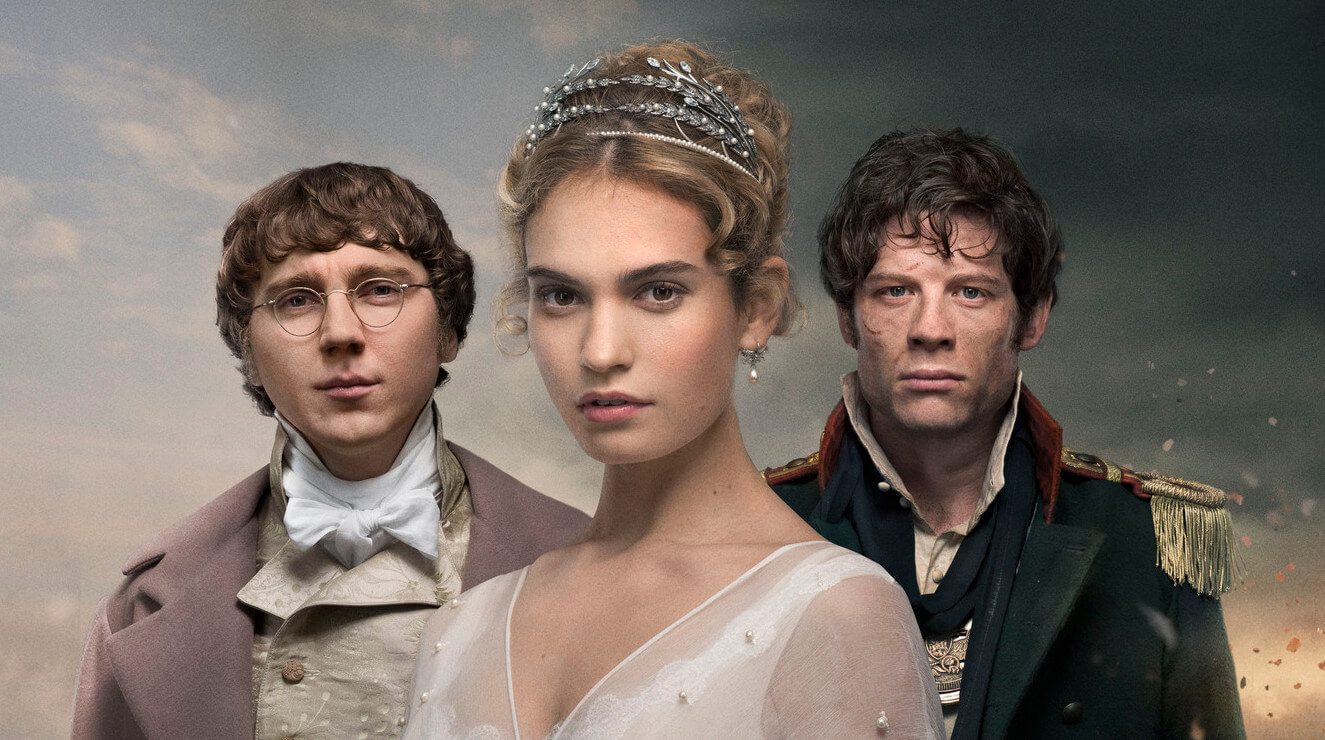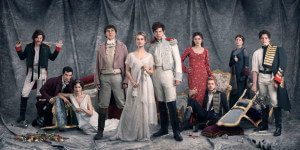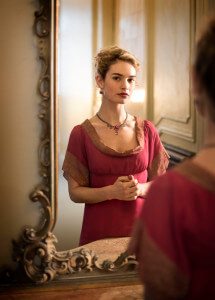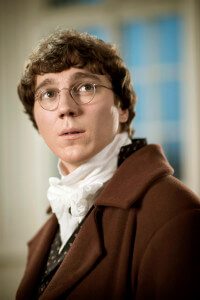BBC War and Peace: Episode 1
[dropcap]T[/dropcap]o my constant shame and regret, I am yet to read War and Peace. I’m not usually put off by longer novels (though this book – at more than half a million words – manages to stretch even that definition), and Tolstoy’s other masterpiece, Anna Karenina, remains a favourite of mine. I like to put this gap in my reading down to a tactical omission on my part; after all, am I not now better able to appreciate the plot-twists of the BBC’s latest six-part adaptation? Is ignorance not bliss? Maybe not, but only when I have finally read the novel will I stop telling myself so.
This new BBC adaptation is in the safe hands of a veteran of costume drama, Andrew Davies, who was responsible for the now near-legendary 1995 version of Pride and Prejudice. Jane Austen somehow managed to write several novels about the English aristocracy without mentioning that a few piddling conflicts known as the Napoleonic Wars were currently tearing Europe apart. Tolstoy did, on occasion, mention it.
Andrew Davies must have thrilled at the prospect of adding brutal battles to his usual repertoire of lavish balls and marital problems
This adaptation will rise or fall by how well it manages the stark contrast between the battlefield and the ballroom; between war and peace. The gold standard here, and the one to beat, is the BBC’s Parade’s End.
The city of St. Petersburg, with its Baroque cathedrals and snow-capped Winter Palace, is the star of the first episode, which aired last Sunday. Much of the series was filmed on location, and it shows. Ponderous shots of the city succeed in conveying a sense of grandeur and majesty; this adaptation, we are being told, is not one of half measures. The budget has not been disclosed, but it must be an outrageous figure.
Small disclaimer: War and Peace is notorious for having too many characters, and it would be impossible for me to summarise the storylines of all of them each week. I will therefore limit myself to those that I find most interesting.
As Napoleon and his forces manoeuvre across the chessboard of Europe, the young men of the Russian aristocracy sign up en masse, but for different reasons.
Nikolai Rostov (Jack Lowden) has a dangerously romantic vision of war and is quickly subjected to a painful lesson in its brutal realities.
Prince Andrei (James Norton) simply wants to escape a suffocating marriage; Davies is in his element here. Andrei’s meeting with his no-nonsense father, Prince Bolkonsky (Jim Broadbent), is the best scene in the episode.
Natasha Rostova (Lily James) is the naive, flirtatious daughter of the Rostov household (it’s so difficult to keep track of all these families). The ostensibly one-dimensional Andrei and Natasha have a tremendous emotional distance to travel, so keep your eye on the evolution of these two.
But Pierre Bezukhov (Paul Dano) is by far the most intriguing character. Recently returned to St. Petersburg (we do not know where from), he has somehow imbibed ideas that do not sit easily with his aristocratic surroundings. Napoleon is a great man, and Russia needs a revolution of its own, he declares. For now at least, his revolutionary tendencies seem merely adolescent. His nights of lust, wine and debauchery suggest that he concurs with Wilde, who once said that the problem with socialism is that is takes up too many spare evenings.
Pierre soon drops all talk of revolution after inheriting his father’s estate and title. The revolutionary-in-waiting becomes Count Bezukhov, an irony not lost on him. The scheming Prince Vassily Kuragin (Stephen Rea) is unable to prevent this happening, but his manipulations continue; by the end of the episode, he has contrived to have Pierre engaged to his daughter, Princess Helene (Tuppence Middleton). Pierre remains deeply uneasy about all of this; watch him closely.
Seeing Rebecca Front (as Anna Mikhailovna) made me chuckle. She is excellent, but seems comically out-of-place to somebody who has only recently watched her play a hilariously awful MP in The Thick of It. Boris Drubetskoy (Aneurin Barnard) is Anna’s only son. For now, he is portrayed in a low-key fashion, but I am eager to see how he develops, if only because Barnard always looks to me like an Elijah Wood who hasn’t slept in weeks.
This episode is concerned with scene-setting, and the more passive characters are soon sure to be bluntly shocked out of their aristocratic shells by the pressures of war. I have high hopes for Episode Two, which airs on BBC One at 9pm on Sunday 10 January.




Comments